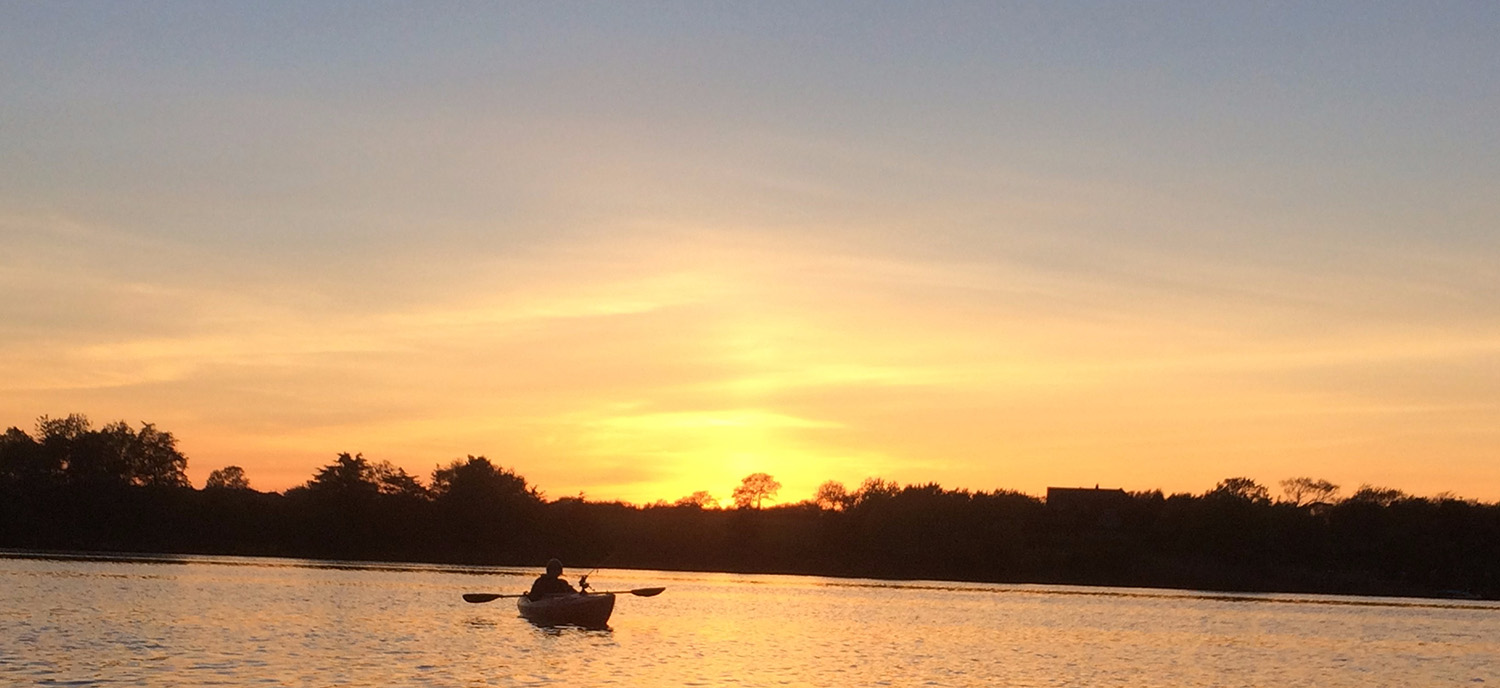

The application states, “The purpose of data obtained as part of the proposed EAS grant is multi-fold. Most importantly, a suite of both spatial and temporal temperature data for the upper Wood River watershed will help guide management decisions for wild brook trout. This study is proposed as a fine scale and comprehensive assessment of summertime water temperatures of the upper Wood River watershed in which mapping of critical habitat will be the primary deliverable. This data is essential for both future development of a wild brook trout management plan as well as protection of critical habitat for brook trout.”
The $3500.00 grant will be matched by $13,583.10 from the chapter and other partners to establish and monitor a series of data loggers for capturing key data in collaboration with RIDEM. The grant will also help pay for signage identifying a Habitat Assessment Study with contact information to RIDEM and TU’s Chapter 225. Equally important will be signs at those locations suggesting anglers catch and release brookies. This is some much needed funding as brook trout are identified as being “greatly in need of conservation” in the RI Strategic Action Wildlife Plan and have been the center of office space and stream side controversy and angst over the years as different groups argued over populations, habitats and priorities. Understanding how water temperatures affect the fish may also draw a line back to the dam impoundment at Breakheart Pond. It’s well established that dams restrict and often totally prevent fish movement to more suitable seasonal habitat but getting dams removed or even some regulatory agencies to agree on the damage some impoundments can have on brook trout populations has been a regular hurdle.
Cheers to Glenn and all the members at 225 for helping to fund the big first step.
Now completed and operational, recreational and commercial fishermen have been enjoying new opportunities around the Block Island wind farm. Many reports from summer and fall included strong catches of bass, blues and sea bass around the towers with one island fisherman even spending a few days a week last winter hooking codfish, like we used to do many years ago before the big crashes. Siting, permitting and installing the turbines was a long process, a no-brainer for some, a terribly contentious few years for others.
They’re established now, spinning and producing.
If you’d like to learn more about the turbines, the projected future of wind energy and new sighting areas, yes there are many more turbines in the works, you are invited to attend the Southern New England Offshore Wind Energy Science Forum on December 11 and 12. You can learn lots more about research behind and ahead of the wind farms and how they might benefit fishermen and recreational boaters. Speakers will cover topics including the how construction and operation of turbines affects habitat, marine mammals and fish, birds and even people.
Contact Jennifer McCann at mccann@uri.edu for registration details. The seminar is sponsored by URI’s Graduate School of Oceanography, the Coastal Resources Management Council and the U.S. Bureau of Ocean Energy Management with financial support from Deep Water Wind and Rhode Island Sea Grant.
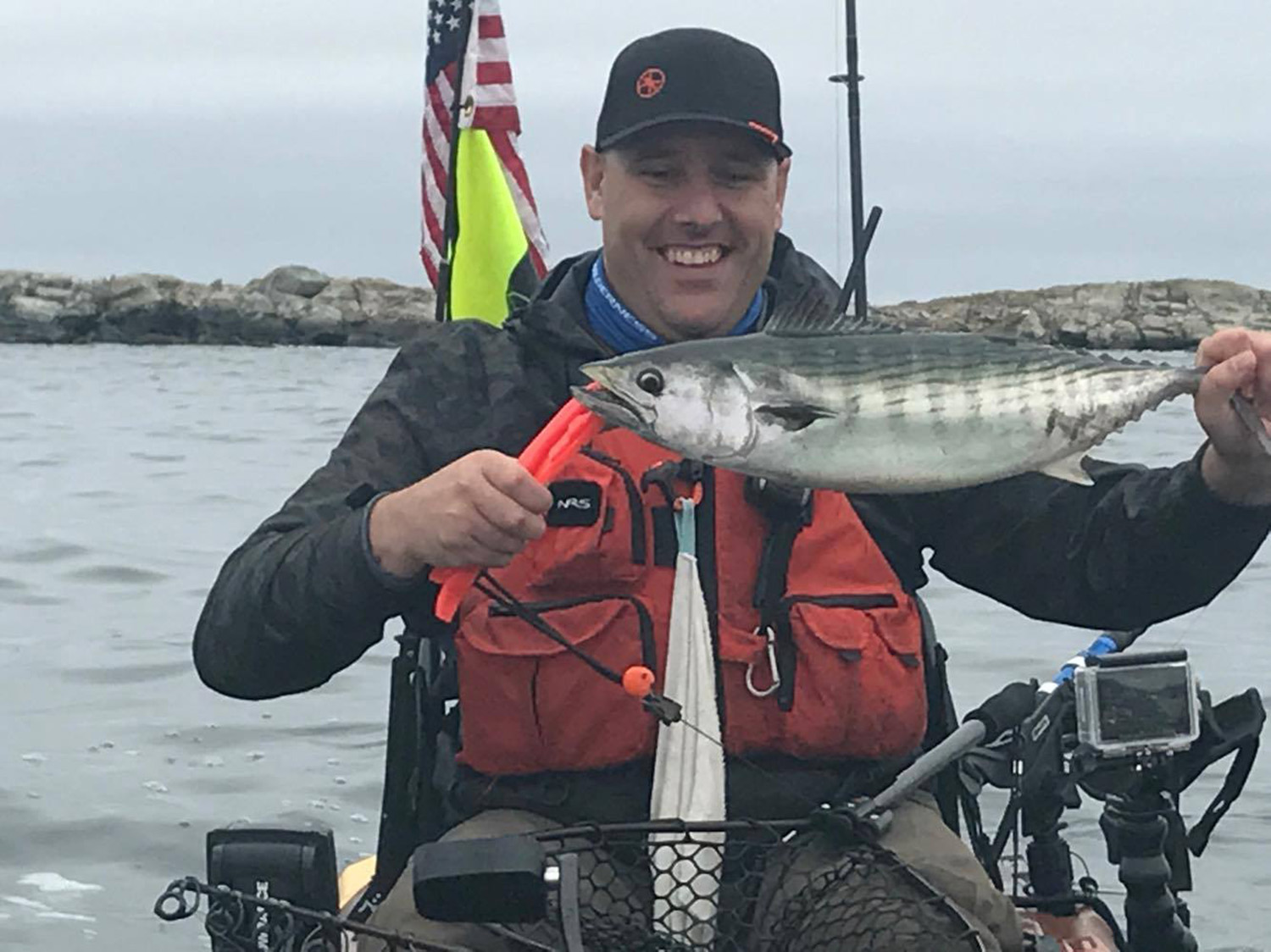
Tom Adams, an albie and a very big smile
For the last throws of the boating season, a few guys are still targeting fleeting pods of albies and a decent remaining population of stripers. As the cold season overtakes us, more frequent winds open the doors to fishing salt ponds full of peanut bunker and bay anchovies. Capt. Jerry Sparks of Northeast Boat and Kayak Charters recommended a MirroOdine twitch bait or D.O.A.’s Shad Tails for bouncing soft baits in shallow waters and he’s been catching quite a bunch. A few more cold November nights and fishing Point Judith Pond and Sprague Bridge will convince many that with the right lures, rivers and ponds, fishing around here never winds down.
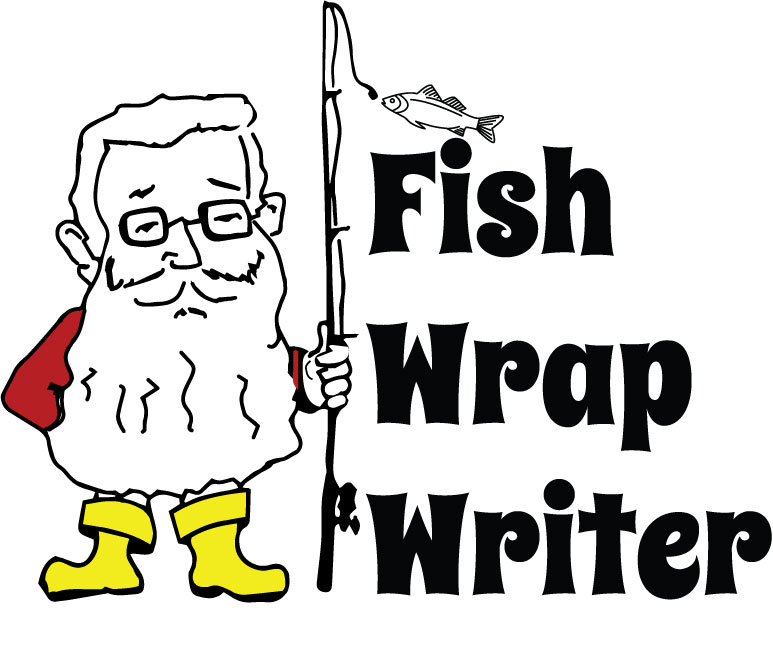


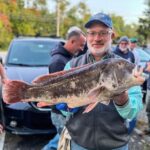
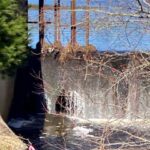

0 Comments